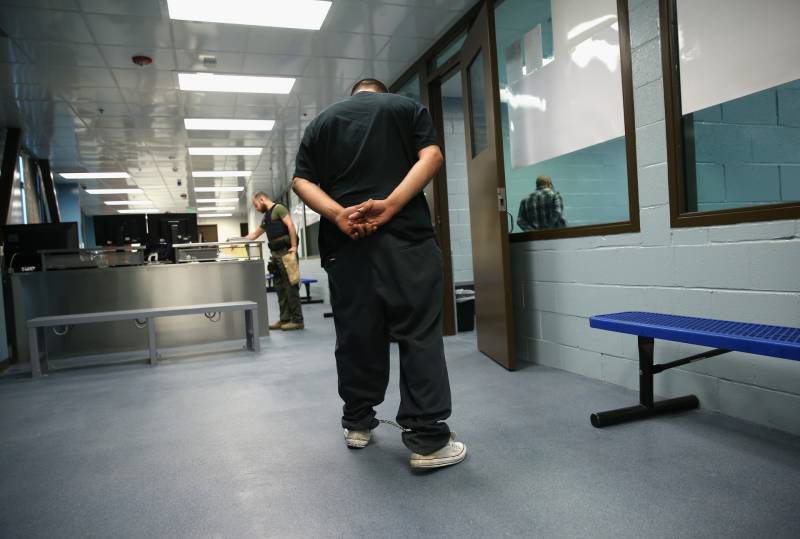For months, the coronavirus has spread rapidly at California state prisons and immigration detention facilities. As of Friday, more than 8,600 people in prisons had been diagnosed with COVID-19, with nearly a thousand detected in the last 14 days, according to the California Department of Corrections and Rehabilitation. In addition, nearly 2,000 prison employees had tested positive.
ICE reported close to 4,200 detainees and 45 employees have been confirmed with COVID-19 at detention centers nationwide. Several more workers at privately run detention facilities may also have had the coronavirus, but the agency does not include them in their tally of employees with positive COVID-19 cases.
At Mesa Verde, 14 workers at the for-profit GEO Group have tested positive, said Emi MacLean, a plaintiff attorney with the San Francisco Public Defender’s Office in the case being considered by Chhabria, Zepeda Rivas v. Jennings. GEO did not return a request for confirmation.
MacLean said Chhabria’s most recent order was, while very important, a “stopgap measure” because social distancing remains impossible for detainees sleeping in dorms with dozens others.
“There are still people in the facility who are in a highly risky condition and who should be released,” MacLean said. “People are terrified. There are individuals who have called crying, saying, ‘I am afraid that the only way out of Mesa Verde is going to be in a body bag.’ ”
MacLean said the facility held nearly 300 people back in April, when detainees sued ICE and GEO Group. Since then, Chhabria has ordered the release of about 130 individuals, while ICE let out dozens more at high risk of severe illness.

